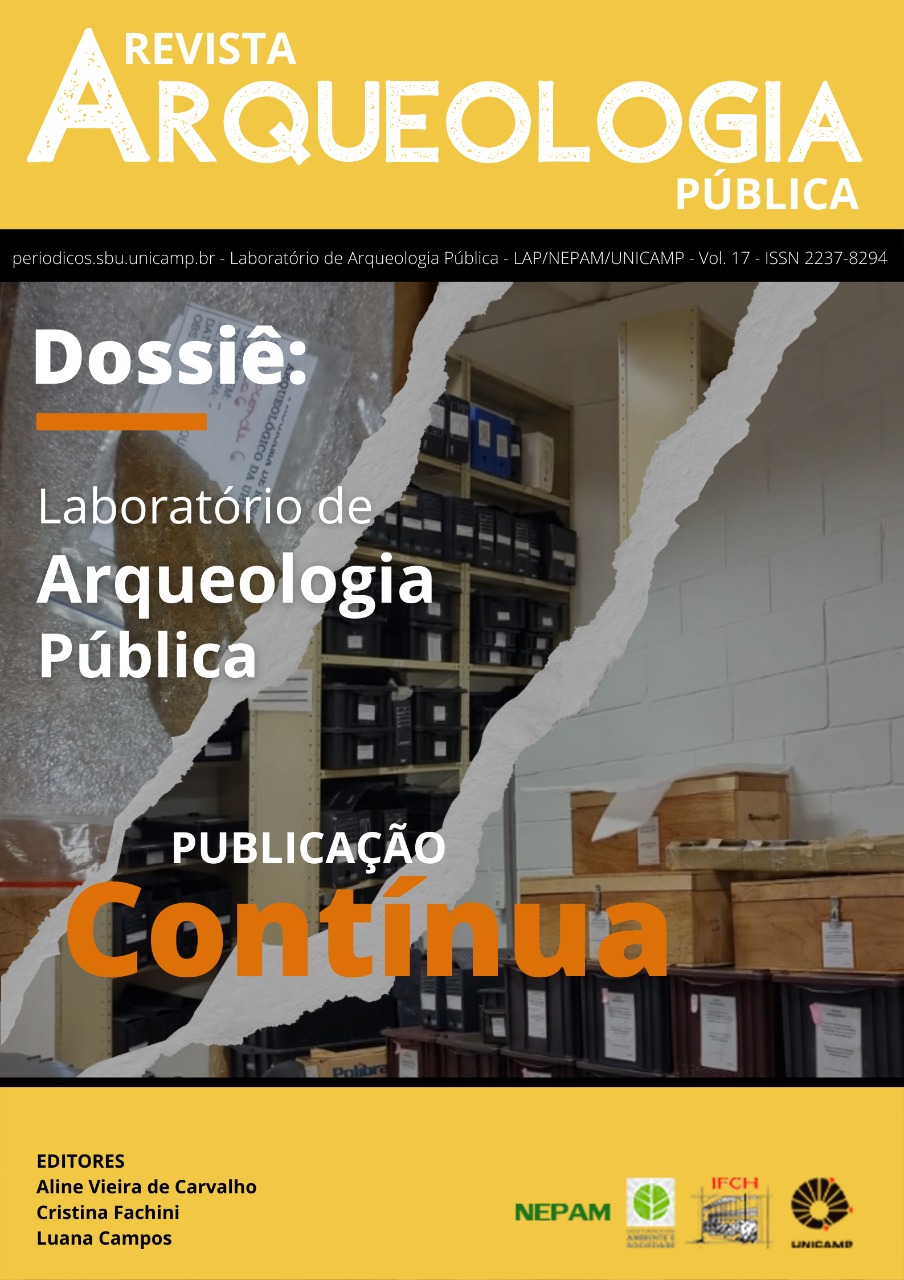Abstract
The current composition of the dishes of the Brazilian population can be an indicator of the agrifood system quality. If, on the one hand, we see a monotony of food from the north to the south of the country, on the other, we perceive a disconnection between food and the diversities present in the different Brazilian territories, biomes and cultures. Starting by the composition of these dishes, in this article, we problematized the current food and point out a strategy for overcoming crises and promoting food sovereignty. We highlight the Non-Conventional Edible Plants (NCEP) as important allies for the projection of a system based on sociocultural diversities and on native, naturalized and traditionally cultivated food plants in our country.
References
ANGIOSPERMAS IN FLORA E FUNGA DO BRASIL. Jardim Botânico do Rio de Janeiro. Disponível em: https://floradobrasil.jbrj.gov.br/FB128482. Acesso em: 16 maio 2022.
BALEM, Tatiana Aparecida; SILVEIRA, Paulo Roberto da. A erosão cultural alimentar: processo de insegurança alimentar na agricultura familiar. In: Congresso da Associação Latino-Americana de Sociologia Rural, 2005.
BRACK, Paulo; KÖHLER, Matias; CORRÊA, Claudine Abreu; ARDISSONE, Rodrigo Endres; SOBRAL, Marcos Eduardo Guerra; KINUPP, Valdely Ferreira. Frutas nativas do Rio Grande do Sul, Brasil: riqueza e potencial alimentício. Rodriguésia [online], v. 71, p. 1-11, 2020.
BARBER, Dan. O terceiro prato: Notas de campo sobre o futuro da comida. Rio de Janeiro: Bicicleta Amarela, 478 p., 2015.
BRASIL. Decreto nº 6.040, de 7 de fevereiro de 2007. Institui a Política Nacional de Desenvolvimento Sustentável dos Povos e Comunidades Tradicionais, 2007.
BRASIL. Guia alimentar para a população brasileira: promovendo a alimentação saudável., 2. ed., Brasília: Ministério da Saúde, 156 p., 2014.
CAMPBELL, Bruce Morgan; BEARE, Douglas James; BENNETT, Elena M.; HALL-SPENCER, Jason, M; INGRAM, John S. I.; JARAMILLO, Fernando; ORTIZ, Rodomiro; RAMANKUTTY, Navin; SAYER, Jeffrey; SHINDELL, Drew. Agriculture production as a major driver of the Earth system exceeding planetary boundaries. Ecology and Society 22(4):8, 2017.
CONTRIGIANI, Ariele Carolina; MARJOTTA-MAISTRO, Marta Cristina; SANJUAN, Adriana Estela; SAUTIER, Denis. Circuitos curtos de comercialização. São Paulo: UFSCar-CPOI, 12 p., 2020. Disponível em: https://www.sibi.ufscar.br/arquivos/circuitos-curtos-de-comercializacao.pdf
CORADIN, Lídio; SIMINSKI, Alexandre; REIS, Ademir (ed.). Espécies Nativas da Flora Brasileira de Valor Econômico Atual ou Potencial: Plantas para o Futuro – Região Sul. Brasília, DF: Ministério do Meio Ambiente, 2011. Disponível em: https://www.mma.gov.br/estruturas/sbf2008_dcbio/_ebooks/regiao_sul/Regiao_Sul.pdf.
DURIGON, Jaqueline; MADEIRA, Nuno Rodrigo; KINUPP, Valdely Ferreira. Plantas Alimentícias Não Convencionais (PANC): da construção de um conceito à promoção de sistemas de produção mais diversificados e resilientes. Revista Brasileira de Agroecologia. No prelo 2022.
ESTEVE, Ester Vivas. O Negócio da Comida: quem controla nossa alimentação? São Paulo: Expressão Popular, 269 p., 2017.
FAO, IFAD, UNICEF, WFP and WHO. The State of Food Security and Nutrition in the World 2020. Transforming food systems for affordable healthy diets. Rome, FAO, 320 p., 2020.
FISCHER, Frank. Climate Crisis and the Democratic Prospect: Participatory Governance in Sustainable Communities. Oxford: Oxford University Press, 2017.
IBGE. Pesquisa de Orçamentos Familiares 2008–2009: análise do consumo alimentar pessoal no Brasil. Rio de Janeiro: IBGE, 2011. Disponível em: https://bityli.com/EI2M1
IDEC. Tem veneno nesse pacote, 2021. Disponível em: https://idec.org.br/veneno-no-pacote.
IPCC. Climate Change 2001: Impacts, Adaptation, and Vulnerability. 1032 p., 2001. Disponível em: https://www.ipcc.ch/site/assets/uploads/2018/03/WGII_TAR_full_report-2.pdf.
JESUS JUNIOR, Celso de; RODRIGUES, Luiza Sidonio; MORAES, Victor Emanoel Gomes de. Fruticultura: convergências e divergências. BNDES Setorial, Rio de Janeiro, n.32, p. 371-396, 2010.
KINUPP, Valdely Ferreira. Plantas alimentícias alternativas no Brasil, uma fonte complementar de alimento e renda. Cadernos de Agroecologia, v. 1, n. 1, p. 333-336, 2006.
KINUPP, Valdely Ferreira. Plantas alimentícias não-convencionais da região metropolitana de Porto Alegre, RS. Porto Alegre: Universidade Federal do Rio Grande do Sul, 562 p., 2007. (Tese Doutorado. Programa de Pós-graduação em Fitotecnia – Faculdade de Agronomia) - Universidade Federal do Rio Grande do Sul, Porto Alegre, 2007.
KINUPP, V. F.; LORENZI, H. Plantas alimentícias não convencionais (PANC) no Brasil: guia de identificação, aspectos nutricionais e receitas ilustradas. 1. ed. Nova Odessa: Plantarum, 2014.
MADEIRA, N. R.; SILVA, P. C.; BOTREL, N.; MENDONCA, J. L. de; SILVEIRA, G. S. R.; PEDROSA, M. W. Manual de produção de hortaliças tradicionais. Brasília, DF: Embrapa, 156 p., 2013.
MARIUTTI, Lilian Regina Barros; REBELO, Kemilla Sarmento; BISCONSIN-JUNIOR, Antonio; DE MORAIS, Janne Santos; MAGNANI, Marciane; MALDONADE, Iriani Rodrigues; MADEIRA, Nuno Rodrigo; TIENGO, Andrea; MARÓSTICA, Mário Roberto Jr.; CAZARIN, Cíntia Baú Betim. The use of alternative food sources to improve health and guarantee access and food intake. Food Research International 149: 1-22, 2021.
RBG Kew (Royal Botanic Gardens, Kew). 2020. The State of the World’s Plants and Fungi. Report – 2016. Kew, Reino Unido, 2020.
REDE PENSSAN- Rede Brasileira de Pesquisa em Soberania e Segurança Alimentar. VIGISAN: Inquérito Nacional sobre Insegurança Alimentar no Contexto da Pandemia da COVID-19 no Brasil. Rio de Janeiro: Rede Penssan, 2021.
SEIFERT JR, Carlos Alberto; DURIGON, Jaqueline. Sociobiodiversidade como o caminho à Soberania Alimentar em Sucessivas Crises Globais. Democracia e Direitos Fundamentais, 2021. Disponível em: https://direitosfundamentais.org.br/sociobiodiversidade-como-o-caminho-a-soberania-alimentar-em-sucessivas-crises-globais/.
ULIAN, Tiziana; DIAZGRANADOS, Maurizio; PIRONON, Samuel; PADULOSI, Stefano.; LIU, Udayangani.; DAVIES, Lee; HOWES, Melanie-Jayne R.; BORRELL, James S.; ONDO, Ian.; PÉREZ-ESCOBAR, Oscar A.; SHARROCK, Suzanne; RYAN, Philipa.; HUNTER, Danny; LEE, Mark A.; BARSTOW, Charles; ŁUCZAJ, Łucasz.; PIERONI, Andrea; CÁMARA-LERET, Rodrigo; NOORANI, Arshiya; MBA, Chikelu; WOMDIM, Rémi Nono; MUMINJANOV, Hafiz; ANTONELLI, Alexandre; PRITCHARD, Hugh W.; MATTANA, Efísio. Unlocking plant resources to support food security and promote sustainable agriculture. People Plants Planet 2 (5) p. 421-445, 2020.
ORGANIZAÇÃO DAS NAÇÕES UNIDAS. Objetivos do Desenvolvimento Sustentável, 2022. Disponível em: https://brasil.un.org/pt-br/sdgs
VALENTE, Camila Oliveira. Impactos do processo de popularização das Plantas Alimentícias Não Convencionais na oferta de produtos agroecológicos: O caso da feira de São Lourenço do Sul. Trabalho de Conclusão de Curso, Universidade Federal do Rio Grande, 42p., 2020.

This work is licensed under a Creative Commons Attribution-NonCommercial 4.0 International License.
Copyright (c) 2022 Revista Arqueologia Pública


